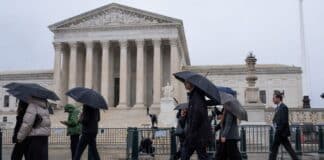The Trump White House has introduced “podcast row,” a new initiative aimed at expanding media access to the administration. On Thursday, several podcasters, including Human Events Daily host Jack Posobiec and The Daily Wire’s Michael Knowles, broadcasted their shows directly from the White House.
In a post on X, the White House celebrated the launch, stating, “Welcome to podcast row at the White House. We are so proud to welcome new media voices and podcasters from around the country who have massive audiences and are talking to everyday Americans like you.” A video accompanying the post emphasized the administration’s commitment to engaging with alternative media outlets and influencers.
The newly designated media section allows podcasters to livestream or record episodes from within the White House. The initiative is part of the Trump administration’s broader push to diversify media access, moving beyond traditional outlets to include independent content creators.
In addition to podcast row, the Trump White House has taken steps to open press briefings to new media. White House Press Secretary Karoline Leavitt announced in January that reporters, social media influencers, and digital journalists could apply for access through a new form. The administration has also restored press passes for 440 reporters whose credentials had been revoked under the Biden administration.
Further challenging the status quo, the White House declared that it would determine the press pool, rather than deferring to the White House Correspondents Association (WHCA). “For decades, a group of DC-based journalists, the White House Correspondents Association, has long dictated which journalists get to ask questions of the President of the United States in these most intimate spaces. Not anymore,” Leavitt stated. She added, “Moving forward, the White House press pool will be determined by the White House press team.”
The launch of podcast row signals a continued effort by the Trump administration to decentralize media access, ensuring that a broader range of voices can engage directly with the White House.





